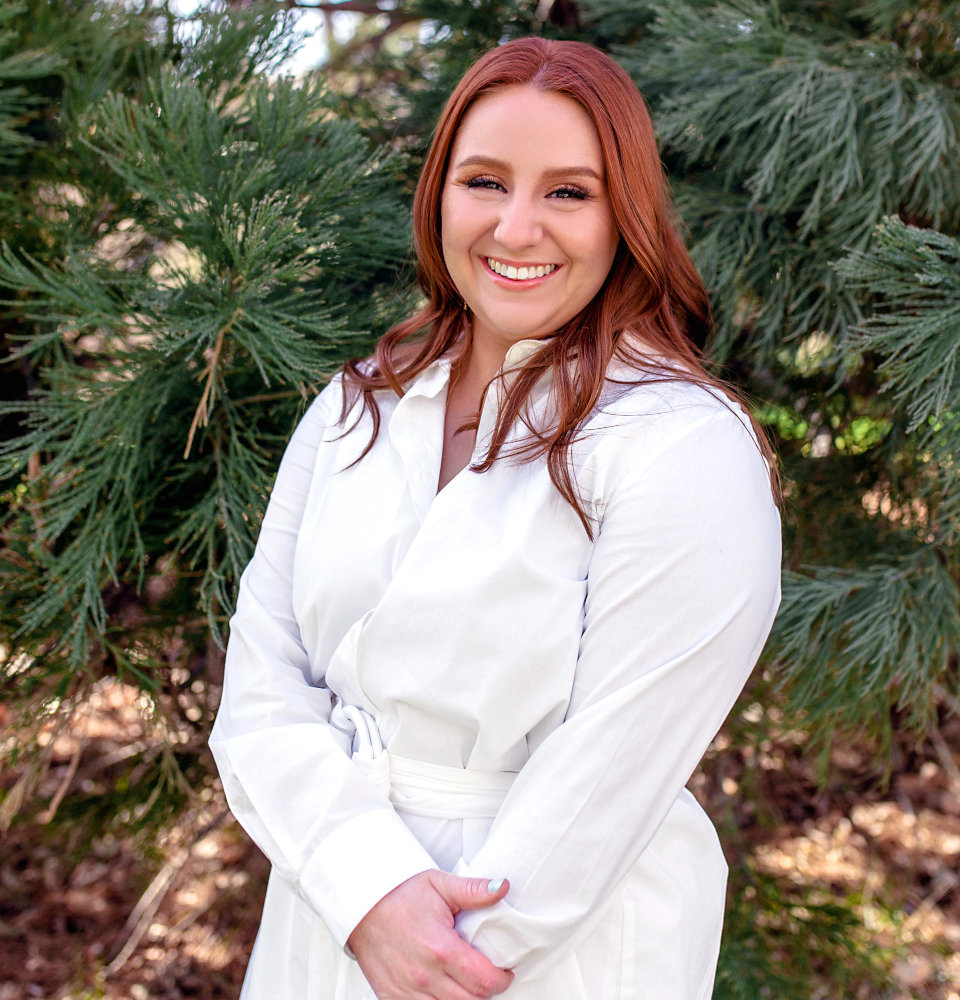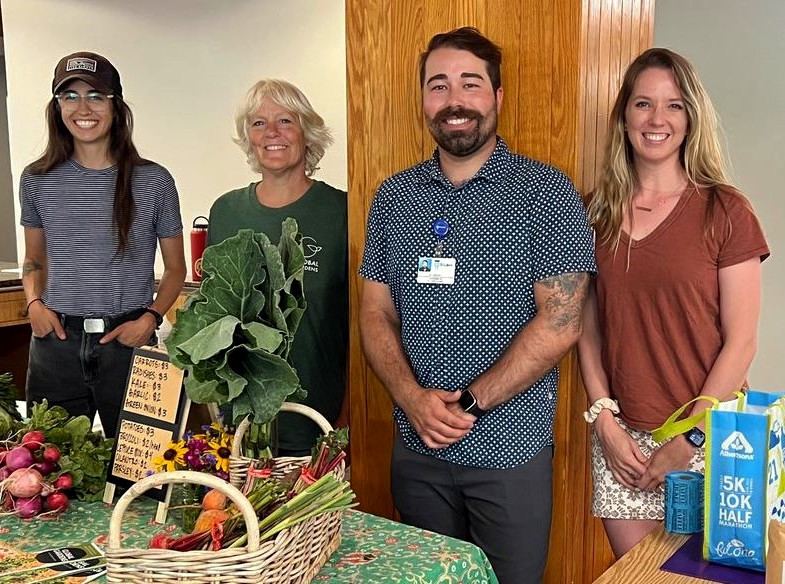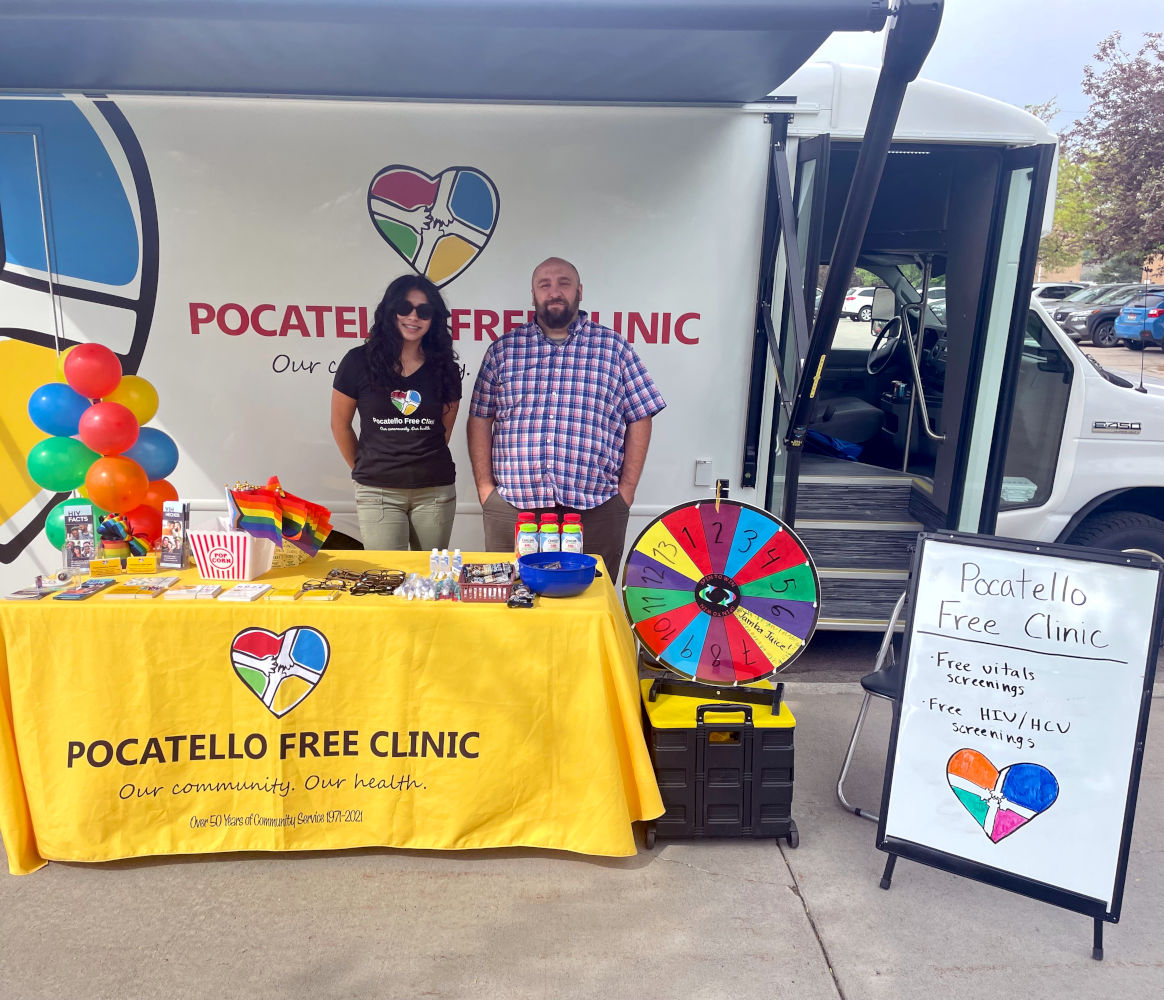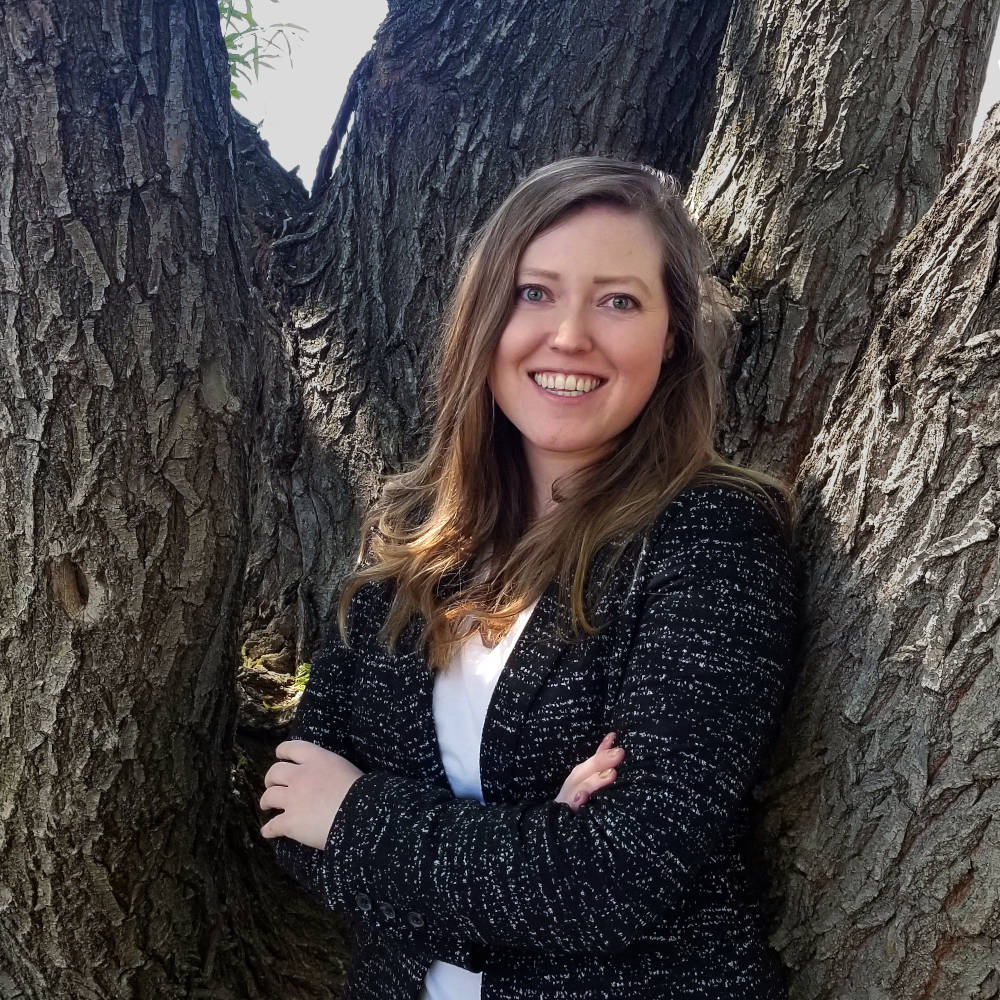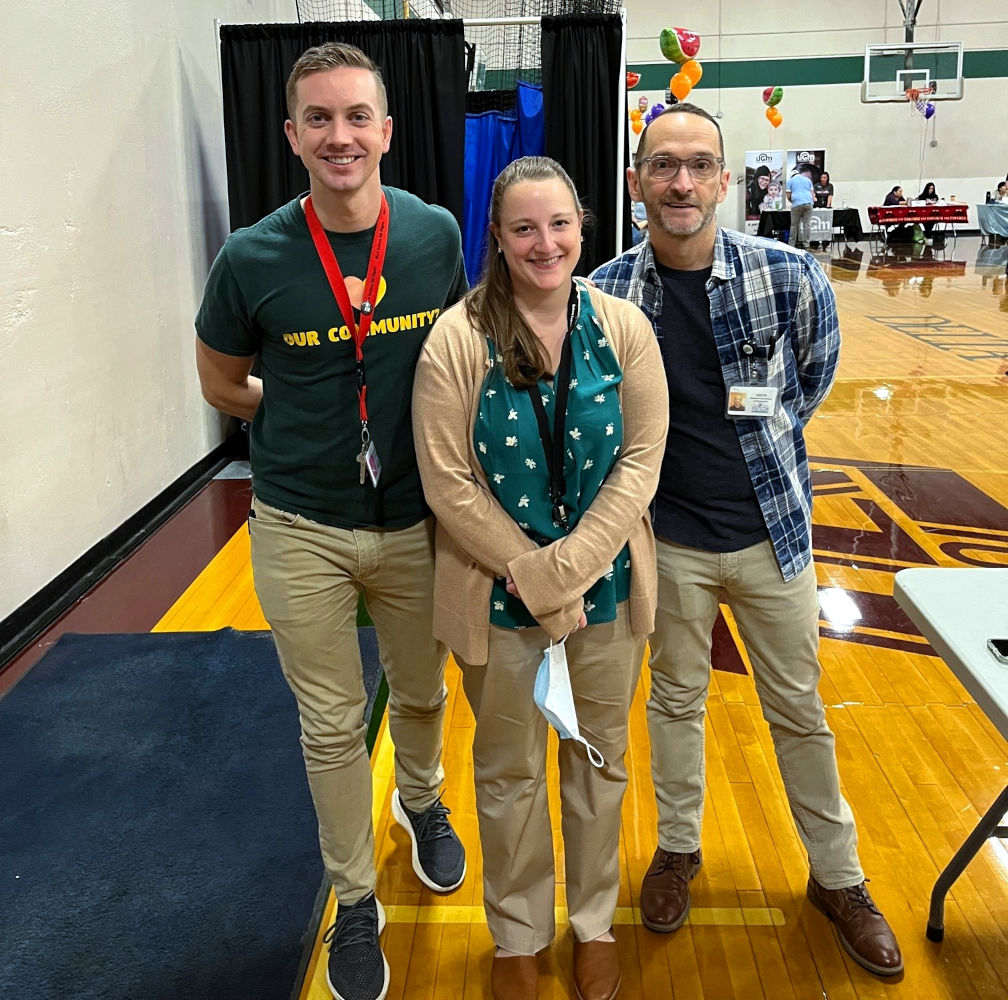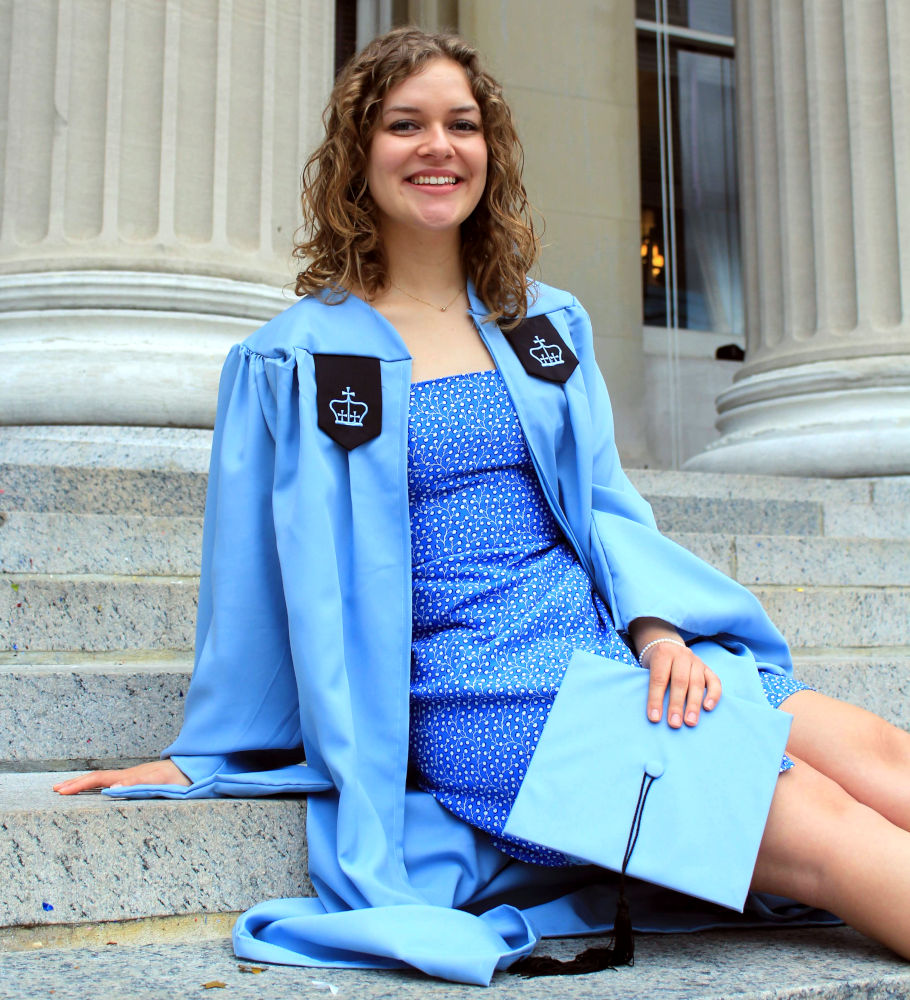Happy Healthy Humans
Regional CEHHS Grads Are Improving Lives in the Public Health Sector
When you consider that University of Idaho does not offer a bachelor’s degree in public health, the number of Vandals making a difference in the public health sector is pretty impressive.
Many U of I graduates working in public health finish college with a degree in Exercise, Sport and Health Sciences within the College of Education, Health and Human Sciences (CEHHS) and its Movement Sciences Department. It’s here where students first meet Clinical Associate Professor Helen Brown, who specializes in community health education and promotion. After taking classes from Brown, their lives, and their career paths, are often affected.
“You aren’t a happy, healthy employee if you aren’t a happy, healthy human. With these programs, we see how much of a difference we make in people’s lives and we get to take that feeling home with us. Why wouldn’t we do this?”
— AJ Gravel, program coordinator at St. Lukes Medical Center
While Brown leads students through the intricacies of public health in classes like Health Promotion, Critical Health Issues and Community Health – Theory, Systems and Practices, she also inspires them to think about the public health model to make any changes – big or small – that will benefit their communities.
“Public health efforts have a multiplier effect that can teach hundreds, thousands and even millions of people at a time,” said Brown. “Students get excited about working in public health because they are passionate and committed to helping communities thrive by creating conditions that help everyone.”
Giving Back
Like many students starting classes at CEHHS, Ashtin Glodt ’16 didn’t have her sights set on a career in the public health sector.
“I didn’t really know public health was a thing,” she admitted.
Originally interested in becoming a physical therapist, she realized after taking Brown’s classes that what she was really interested in – helping people – could be done on a larger, more impactful stage through public health.
Growing up in a small North Idaho town, Glodt remembered seeing how tobacco addiction and the lack of resources available at the time impacted the health of the entire community. She decided that she would educate and prepare herself to help those people quit smoking when they were ready.
After gaining experience at U of I interning as a peer health educator for the Alcohol & Other Drugs Program and the Vandal Health Education program, she started supporting public health programming as an intern at the Idaho Public Health - District 2 office in Lewiston. After graduation, she worked as a health program specialist for the Maternal, Infant and Early Childhood Home Visiting Program for the Idaho Department of Health and Welfare (IDHW).
Glodt now manages Project Filter, IDHW’s tobacco cessation and prevention program. This program partners with communities, healthcare providers, coalitions, and local public health entities statewide to promote and encourage smoke-free policies and regulations through education, marketing, interventions and other resources.
“Growing up, I saw firsthand the stigma around addiction and how it affected everyone’s health,” she said. “Through Project Filter, my team and I work with organizations that are passionate about creating an environment where Idahoans can work, live, and play free from nicotine addiction.”

Taking Ownership
AJ Gravel ’16 can often be seen picking up garbage alongside Boise roads. While this is not an official part of his duties, he enjoys rolling up his sleeves and working with other volunteers as program coordinator for St. Luke's Medical Center.
Examples of programs Gravel has created include a pop-up produce stand near the St. Luke's campus, where employees can purchase fresh fruit and vegetables, and the trash collection initiative that occurs both at St. Luke’s and in Boise. He also partners with existing programs, such as Global Gardens in Boise, which helps creates farming opportunities for immigrants.
“Healthy lifestyles lead to healthy populations,” he said.
When Gravel first came to U of I, the former lacrosse player set his sights on becoming an athletic trainer – until his world view got turned around after attending Brown’s Study Abroad in Global Health, Literacy and Community Development in Nicaragua.
After witnessing the amount of poverty, unsanitary conditions and waste that existed around large populations of people, his focus changed.
“It was a complete culture shock,” Gravel said. “It really struck a chord with me about environmental health. You couldn’t help but open your heart and mind to the people living there.”
By creating opportunities for St. Luke’s employees to give back and help people in their community, Gravel understands that it benefits everyone.
“You aren’t a happy, healthy employee if you aren’t a happy, healthy human,” he said. “With these programs, we see how much of a difference we make in people's lives and we get to take that feeling home with us. Why wouldn’t we do this?”

A Power-ful Ally
Emilia Carrillo ’22 grew up around poverty, teen pregnancy and primarily Spanish-speaking migrant laborers in Power County. At U of I, she studied those problems in-depth in Brown’s Critical Health Issues and Comparative Health Systems classes. After she graduated, she returned home to help them.
Carrillo is a first-generation college graduate. She grew up with a single mom and six siblings and felt driven to find a way to give back to a community that needed help.
It was in Brown’s classes that she realized Power County’s largest problem – lack of education about the public healthcare system, especially by the at-risk community of migrant farm workers.
“I understand the barriers the farm and agricultural workers face,” she said. “Eighty percent of them didn’t have access to health care, mainly because they don’t speak or understand English and they don’t understand their rights.”
After graduation, Carrillo began working for the Pocatello Free Clinic, which provides free medical and dental care, as well as services for behavior and mental health, to those who are uninsured. She asks patients what they need and ensures they understand the services that are available to them.
The clinic’s patient load tripled since Carrillo began working there, mainly because of the connection between Carrillo and the clients.
“Because they know who I am, people that I help will tell five or six more people to come see me because we’ve built that trust,” she said. “These people need someone who really cares about them. They need help and I’m the one who can provide it for them.”

Working Upstream
A common theme in Brown’s public health classes is the concept of working upstream – preventing health issues before they start. Jennifer Liposchak ’13 embraces this concept more than most.
Like Gravel, she came to Moscow with her sights set on becoming an athletic trainer. But after taking several of Brown’s health courses and hearing about prevention for the first time, understanding more about it became her mission.
“I’d never really heard about prevention before or remembered hearing people talk about it,” said Liposchak, who lost a family member to cancer that might have been prevented given their family history. “The more I learned about it, I knew it was the right path for me.”
Currently a health program manager for women and infant health at IDHW, Liposchak oversees programs focused on assessment, quality improvement and education in an effort to prevent complications before they start.
And despite challenges in her field due to the passing of recent state laws that impact women’s health rights and the subsequent challenges women’s health care providers face, she remains undeterred.
“Working at a variety of levels, from individuals to systems and communities, and seeing the changes that can happen is so rewarding,” she said. “I know this is some of the most important work I’ll ever do.”

Filling in the Gaps
Daniel Trautvetter ’13 became interested in public health because he saw there was a wide variety of ways to help – and many people who needed assistance.
The Coeur d’Alene native originally planned on becoming a physician’s assistant but switched gears after taking Brown’s Community Health Assessment, Planning and Intervention class.
“I remember hearing about preventing childhood fatalities in a foreign country just by building sidewalks – a really easy fix,” he said. “I knew then I wanted to do something in public health.”
He spent three years as a health program specialist at Spokane Regional Health District (SRHD), unknowingly diving into the deep end of learning about public health by joining as a disease investigator in July 2020.
“I was immediately thrown into COVID work,” he said. “It was very challenging but I learned a lot very quickly.”
Trautvetter recently joined CHAS Health, a non-profit health center providing medical, dental, pharmacy and behavior health services in Washington (Spokane County and Clarkston) and Idaho (Moscow and Lewiston), as a School-Based Health Program Manager.
“This is a challenging field and the burnout rate is high,” he said. “But it’s also very rewarding to become an expert in your field and to make a difference. You get to fill in the gaps that others can’t.”

A Different Way to Help
Lauren Hall ’20 came to U of I with the idea of one day going to medical school. And although she graduated with a degree in microbiology, she realized early on that her interest in the clinical side of health care was waning.
“I really liked STEM learning, microbiology and chemistry and things like that, but eventually wanted to be part of the health sector in a different way,” said the Richland, Washington, native.
A high school friend who attended U of I suggested Hall take some classes from Brown to see if that was what she might be looking for.
Hall immersed herself in community health classes, including the Comparative Health Systems class in London, and found her niche.
Since graduating from U of I, Hall has been on a whirlwind tour of the U.S., first working for AmeriCorps in San Francisco during the COVID summer of 2020 and most recently for the New York City Department of Health in disease surveillance.
Hall also just completed her Masters of Public Health from Columbia University.
She plans to stay in the New York City area for the foreseeable future but credits her time at U of I for helping her learn that the most important aspect of public health is interaction – hearing about problems directly from the people experiencing them.
“I learned so much from public health classes at U of I,” she said. “Having a healthy community really is the key to a healthy life.”

Article by David Jackson, University Communications and Marketing.
Photos by Joe Pallen, University of Idaho Visual Productions and provided by Ashtin Glodt, AJ Gravel, Emilia Carrillo, Jennifer Liposchak, Daniel Trautvetter and Lauren Hall.
Published in September 2023.








